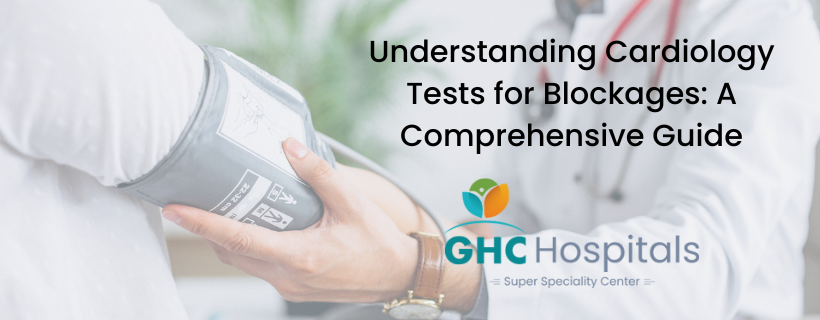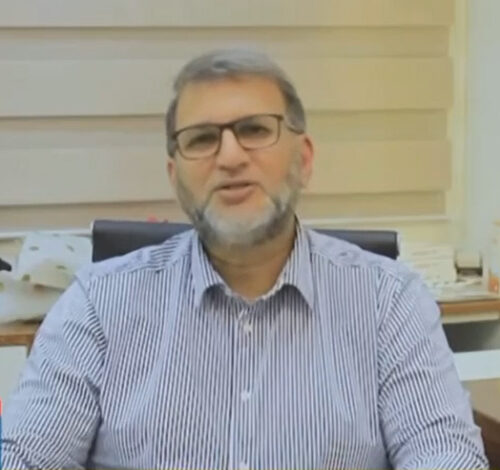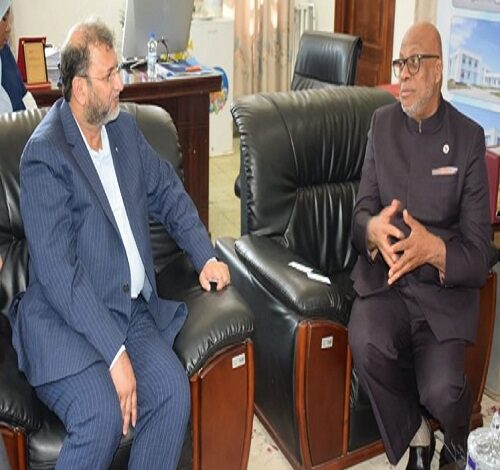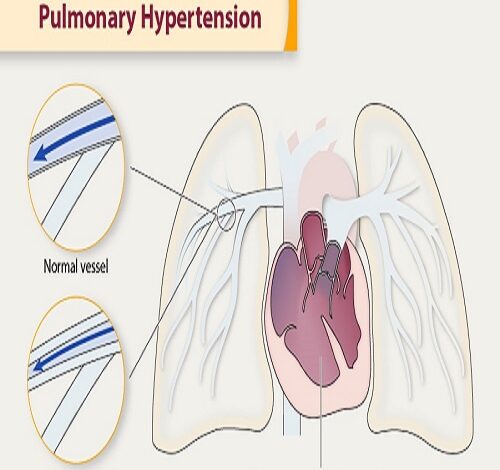Heart disease is one of the leading causes of death globally, and blockages in the coronary arteries are a major contributor. Identifying these blockages early through various cardiology tests can be life-saving. At GHC Hospitals, a multispecialty hospital dedicated to providing top-notch heart care services, we prioritise your heart health. In this article, we’ll explore the essential cardiology tests for detecting blockages and how they can help prevent serious heart conditions.
What is a Heart Blockage?
A heart blockage occurs when the coronary arteries, responsible for supplying oxygen-rich blood to the heart muscle, become narrowed or blocked due to the buildup of fatty deposits called plaques. This condition is known as coronary artery disease (CAD) and can lead to chest pain (angina), shortness of breath, or even a heart attack if left untreated.
Why are Cardiology Tests for Blockages Important?
Early detection of coronary artery blockages is crucial for preventing severe complications. Cardiology tests help in identifying the presence, location, and severity of these blockages. Once detected, your cardiologist can recommend appropriate treatments, ranging from lifestyle changes and medications to surgical interventions, to restore healthy blood flow to your heart.
1. Electrocardiogram (ECG or EKG)
An Electrocardiogram, commonly known as an ECG or EKG, is one of the most basic and widely used cardiology tests. An ECG test for heart blockage records the electrical activity of your heart through electrodes attached to your skin. Abnormalities in the ECG can help in EKG heart blockage detection or areas of the heart that may not be receiving enough blood flow.
2. Stress Test (Exercise Stress Test or Treadmill Test for heart blockage)
A Stress test for heart blockage measures how your heart functions under physical stress. During the test, you’ll walk on a treadmill or ride a stationary bike while your heart rate, blood pressure, and ECG are monitored. If blockages are present, they may be revealed during the increased demand for oxygen while doing the exercise stress test for the heart.
3. Echocardiogram (Echo)
An Echocardiogram for heart blockage uses sound waves to create detailed images of your heart. It helps visualise the heart’s structure, including the size, shape, and function of the chambers and valves. This echo tests heart blockage detection indirectly by showing areas of the heart that are not moving properly due to reduced blood flow.
4. Nuclear Stress Test
A Nuclear stress test for heart blockage is a more advanced version of the standard stress test. It involves injecting a small amount of radioactive material into your bloodstream. During the nuclear imaging of the heart, a special camera then detects this material as it flows through your heart, creating images that show areas with poor blood flow, indicating potential blockages in a radioactive stress test.
5. Cardiac CT Scan (CT Angiography)
A Cardiac CT scan for blockage, also known as CT angiography for heart blockage, is a non-invasive heart blockage test that provides detailed pictures of your heart and its blood vessels. During the test, a contrast dye is injected into your veins, and a CT scanner captures images of the coronary arteries. This test is particularly useful for detecting blockages and narrowing of the arteries.
6. Cardiac Catheterization (Coronary Angiography)
Cardiac catheterization for heart blockage, or coronary angiography test, is a more invasive test but is considered the gold standard for diagnosing blockages. During the procedure, a thin tube (catheter) is inserted into an artery in your groin or arm and guided to the coronary arteries. A contrast dye is then injected, making the arteries visible on X-rays, which allows the doctor to see blockages directly using this invasive test for heart blockage.
7. Magnetic Resonance Imaging (MRI) of the Heart
Cardiac MRI for heart blockage is a non-invasive test that uses powerful magnets and radio waves to create detailed images of your heart. This MRI heart test helps in assessing the heart’s structure and function, and can also detect areas of the heart muscle that may be damaged due to lack of blood flow, which can be caused by blockages by giving out non-invasive heart imaging.
8. Blood Tests (Cardiac Biomarkers)
Blood tests for heart blockage are often used in conjunction with other diagnostic tools to detect heart blockages. Cardiac biomarkers like Troponin for test heart blockage and C-reactive protein (CRP) levels can indicate heart muscle damage and inflammation, respectively, both of which are associated with blockages.
Preparing for Your Cardiology Tests
Before undergoing any cardiology test, it’s important to follow your doctor’s instructions and prepare for heart tests. Here’s what to expect in heart blockage tests – you may need to fast for several hours, avoid certain medications, or refrain from strenuous activity before the test. At GHC Hospitals, our experienced team will guide you through heart test preparation tips to ensure accurate results.
What Happens After the Tests?
After your cardiology tests, your doctor will review the results of your heart blockage test results and discuss the next steps with you. If blockages are detected, treatment after heart blockage detection needs to be implemented. Heart blockage’s next steps may include lifestyle changes, medications, angioplasty, or bypass surgery, depending on the severity and location of the blockage.
Why Choose GHC Hospitals for Your Heart Care?
At GHC Hospitals, we understand the importance of early detection and treatment of heart blockages. With our state-of-the-art facilities and highly skilled cardiologists, we are one of the best heart hospitals dedicated to providing comprehensive care tailored to your needs. From advanced diagnostic tests to personalised treatment plans, GHC Hospital’s cardiology department is committed to helping you achieve optimal heart health and guiding you with Heart health tips.
Conclusion
You may wonder when to see a cardiologist. Regular check-ups and early detection are key to preventing serious heart conditions. If you experience symptoms like chest pain, shortness of breath, or fatigue, don’t hesitate to consult with a cardiologist for heart blockage treatment at GHC Hospitals. The tests mentioned above are essential tools in the early detection of heart blockage and in ensuring you receive the appropriate care. For more information on scheduling heart tests, or to book an appointment, contact GHC Hospitals today.





